JEE Main 2020 Syllabus

National Testing Agency (NTA) will release the officially JEE Main syllabus 2020. students will be able to check the important topics and subjects from where questions will be asked in the entrance exam through the syllabus of JEE Main 2020. Students can check out the IIT JEE Syllabus for Chemistry, Physics and Mathematics through our website. Students preparing for JEE Main 2020 can go through the subject wise important chapters and topics through the IIT JEE Syllabus PDF. With the help of syllabus, students appearing for JEE Main can prepare their studies and focus on topics that will need more time and concepts which can be understood easily. NTA will release the JEE Main 2020 syllabus for two parts such as Paper 1 and Paper 2. Along with the syllabus of JEE Main 2020, students can also check out previous year question papers to get an idea about the difficulty level of examination. Students must know the syllabus for JEE Main 2020 to begin the preparation in a good direction. The JEE Mains Syllabus for Physics, Mathematics, Chemistry is given on this web page. students preparing for the upcoming JEE Mains for January session should study all the topics presented in the JEE Main Syllabus 2020. The syllabus is provided by the exam conducting body that is the National Testing Agency. The first step for JEE Preparation is to know the JEE Main Syllabus 2020. Prepare well to get good rank in JEE Main Examination.
The National Testing Agency (NTA) issued the syllabus for the JEE Main – a national-level exam for admission to engineering colleges. Interested students can access the detailed syllabus for the examination at the official website.
NTA JEE Main Syllabus with Weightage

While there is no weightage provides for physics, chemistry and maths as such published by the NTA, but when it comes to providing a preference, in case two or more students have obtained same marks, then maths is given topmost priority followed by chemistry and then physics. In case the marks of students still remain the same, then priority is provided to the student who is elder. The engineering examination will consist of 90 questions, each question for four marks. JEE Main is for 360 marks and every question for four marks and for every wrong answer one mark is subtracted.
IIT JEE Main Syllabus

Maths will have questions on relations and functions, mathematical induction, binomial theorem, sequences and series, mathematical induction, vector algebra, statics and probability, coordinate geometry, complex numbers and quadratic equations, integral calculus, limit, continuity and differential ability, sets, matrices and determinants, permutations and combinations, trigonometry, three dimensional geometry and mathematical reasoning will be asked.
Physics is split into section A and B. Section A carries weightage of 80% while B carries weightage of 20%. In Section A syllabus covers, kinematics, laws of motion, current electricity, electrostatics, gravitation, thermodynamics, kinetic theory of gases, work energy and power, physics and measurement, optics, atoms and nuclei, magnetic effects current and magnetism, rotation motion, oscillation and waves, communication system, optics, electromagnetic induction and alternating currents, electronic devices, dual nature of matter and radiation. Section B covers experimental skills.
Chemistry covers state of matter, atomic structure, redox reaction and electrochemistry, chemical bonding and molecular structure, solutions, d and f block elements, hydrogen, chemical thermodynamics, classification of elements and periodicity in priorities, environmental chemistry, organic compounds containing halogens, equilibrium, chemical kinetics, surface chemistry, block elements, polymers, biomolecules, co-ordination compounds, hydrocarbons, environmental chemistry, chemistry in everyday life, principles related to practical chemistry.
Aptitude test syllabus frames of two subsections, namely, awareness section wherein questions based in materials, analytical reasoning, persons, buildings, visualising, mental ability and different dimensional objects will be asked. In section 2 sketching of scenes and activity for the memory of urbanscape, three dimensional and perceptions will be tested.
JEE Main Syllabus for 2020

The primary topics that the students find in the JEE Main syllabus for 2020 are the same topics that are students find in the NCERT books. It is adviced to the students that they must keep practising the topics of 11th and 12th class education. To score well in the exam cover all the essential topics of Chemistry, Physics, and Mathematics of classes 11th and 12th.
JEE Main 2020 Syllabus for Paper 1

JEE Maths Syllabus: Sets, relations and functions, Matrices and determinants, Sequences and series, Mathematical induction, Binomial theorem and its simple applications, Integral calculus, Statistics and probability, Complex numbers and quadratic equations, Vector algebra, Trigonometry, Permutations and combinations, Mathematical reasoning, etc.
JEE Physics Syllabus: Physics and measurement, Rotational motion, Thermodynamics, Laws of motion, Oscillations and waves, Electronic devices, Electromagnetic induction and alternating currents, Current electricity, Optics, Electrostatics, Work, energy and power, Kinematics, Gravitation, Kinetic theory of gases, Properties of solids and liquids, etc.
JEE Chemistry Syllabus: There is three parts in Chemistry

1. Physical Chemistry: Some basic concepts in chemistry, Atomic structure, Equilibrium, Chemical thermodynamics, Chemical bonding and molecular structure, Chemical kinetics, States of matter, etc.
2. Organic Chemistry: Purification and characterization of organic compounds, Organic compounds containing halogens, Chemistry in everyday life, Some basic principles of organic chemistry, Organic compounds containing nitrogen, etc.
3. Inorganic Chemistry: Classification of elements and periodicity in properties, D – and f – block elements, Block elements (alkali and alkaline earth metals), Hydrogen, Environmental chemistry, Block elements group 13 to group 18 elements, etc.
JEE Main 2020 Syllabus for Paper 2

Section I: Visualising three-dimensional objects from two-dimensional drawings, Materials, Awareness of persons, places, Buildings, Analytical Reasoning Mental Ability (Visual, Numerical and Verbal), Visualising etc.
Section II: Understanding and appreciation of scale and proportion of objects, Transformation of forms both 2 D and 3 D union, harmony and contrast, colour texture, building forms and elements, Creating two dimensional and three-dimensional compositions using given shapes and forms, subtraction, rotation etc.
If seen carefully the students can find that the syllabus for the IIT conducted JEE exam is exactly like the syllabus of the JEE main examination. But, the examination pattern is a little different. the students can refer and practice from the syllabus that we have given here. They should have a solid grip on the fundamentals and practice efficiently as much as could be expected to ace every subject. The questions that are asked in the mathematics and physics examination basically cover the ones which involve calculation. Once the students have fully studied the NCERT books, they can move forward and prepare with the previous year question papers so as to ace the subject.
Preparation Books for JEE Main 2020

Physics Books

| Books Name | Book Links |
| Concepts of Physics (Volume 1) by HC Verma | Download PDF |
| Concepts of Physics (Volume 2) by HC Verma | Download PDF |
| Problems in General Physics by I.E. Irodov | Download PDF |
| Solutions To Irodov’s Problems In General Physics, Vol I | Download PDF |
| Solutions To Irodov’s Problems In General Physics, Vol II | Download PDF |
| Fundamentals of Physics by David Halliday, Robert Resnick, and Jearl Walker | Download PDF |
| 40 Years IIT-JEE Advanced + 16 yrs JEE Main Topic-wise Solved Paper Physics | Download PDF |
Chemistry Books

| Books Name | Book Links |
| Organic Chemistry by Robert Morrison and Boyd | Download PDF |
| Concise Inorganic Chemistry by J.D. Lee | Download PDF |
| Modern Approach to Chemical Calculations by RC Mukherjee | Download PDF |
| 40 Years IIT-JEE Advanced + 16 yrs JEE Main Topic-wise Solved Paper Chemistry | Download PDF |
Maths Books

| Books Name | Book Links |
| Problems in Calculus of One Variable by I.A. Maron | Download PDF |
| Calculus and Analytic Geometry by Thomas Finney | Download PDF |
| Higher Algebra by Hall and Knight | Download PDF |
| 40 Years IIT-JEE Advanced + 16 yrs JEE Main Topic-Wise Solved Paper Mathematics | Download PDF |
JEE Main Preparation Strategy 2020

Lakhs of students will appear for the JEE Main 2020 examination, the success will depend on how well you will prepare for the examination. Here are preparation tips that you should follow to prepare for the JEE Main 2020 exam and get good marks and pass the entrance exam.
- The first thing you should do is to understand the concepts rather than memorizing everything.
- Keep short notes of the concepts you have studied. The notes should include all the important topics, shortcuts and mistakes etc. so that you can learn easily.
- While preparing for the examination, note down all the important points, formulas and concepts at one place. Read these notes regularly.
- Students can solve previous year exam papers and sample papers to know the examination trend and type of questions coming in the examination
- Self study is the key to success, never depend on coaching alone. Make sure you study on a regular basis.
- Before starting the preparation, students must know the complete details of examination pattern, syllabus and marking scheme.
- Prepare for the examination from the study material which is mostly suggested by other qualified students and experienced teachers.
JEE Main 2020 Exam Pattern

National Testing Agency (NTA) will conduct JEE Main 2020 completely in online mode through Computer Based Test. The JEE Main exam pattern is likely to be similar to the previous year edition of the entrance exam. There will be two papers of JEE Main 2020 one is Paper 1 for engineering students and Paper 2 for students seeking admissions in architecture programs. Given below is the paper-wise examination pattern of JEE Main 2020:
JEE Main 2020 Exam Pattern for Paper 1

| Parameters | Particulars |
| Examination Mode | Computer Based Test |
| Duration of Examination | 3 hours |
| Total Subjects | Mathematics, Physics and Chemistry |
| Number of Questions | 90 (30 questions from each subject) |
| Type of Questions | Multiple Choice Questions (MCQs) |
| Marking Scheme | Each correct response will be rewarded 4 marks 1 mark will be deducted for each incorrect answer. Unattempted questions will not be marked. |
| Maximum Marks | 360 Marks |
| Medium of paper | English or Hindi and Gujrati |
JEE Main 2020 Exam Pattern for Paper 2

| Parameters | Particulars |
| Examination Mode | Mathematics and Aptitude test will be conducted in computer-based test mode, whereas Drawing test will be conducted in the pen-and-paper mode |
| Duration of Examination | 3 hours |
| Total Subjects | Mathematics, General Aptitude, and Drawing skills |
| Number of Questions | 83 (Mathematics 30 questions, Aptitude 50 and Drawing 3) |
| Type of Questions | Maths and Aptitude will be Multiple Choice Questions while drawing section will have questions to test the drawing and sketching skills of the candidate |
| Marking Scheme | Each correct answer will be rewarded 4 marks 1 mark will be deducted for each incorrect answer. Unattempted questions will not be marked. |
| Maximum Marks | Total of 390 Marks (Drawing section -70 marks) |
| Medium of paper | English or Hindi and Gujrati |
JEE Main 2020

From 2019 onwards, the Ministry of Human Resource Development has given the authority of conducting JEE Main from CBSE to NTA. This year, National Testing Agency is conducting the entrance exam two times in a year. The first session is held in the month of January and the second session is going to take place in April 2020. By this entrance exam, students can get admission in the courses like B.E., B.Tech, and B.Arch in the top colleges of India. While preparing for the JEE Main for the following educational year, students must know the syllabus on their tips as well as the examination pattern thoroughly.







 Profile
Profile Signout
Signout
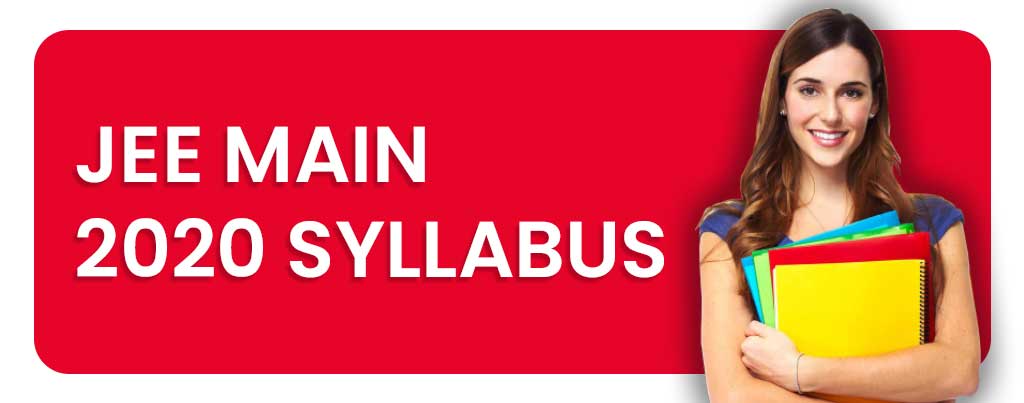








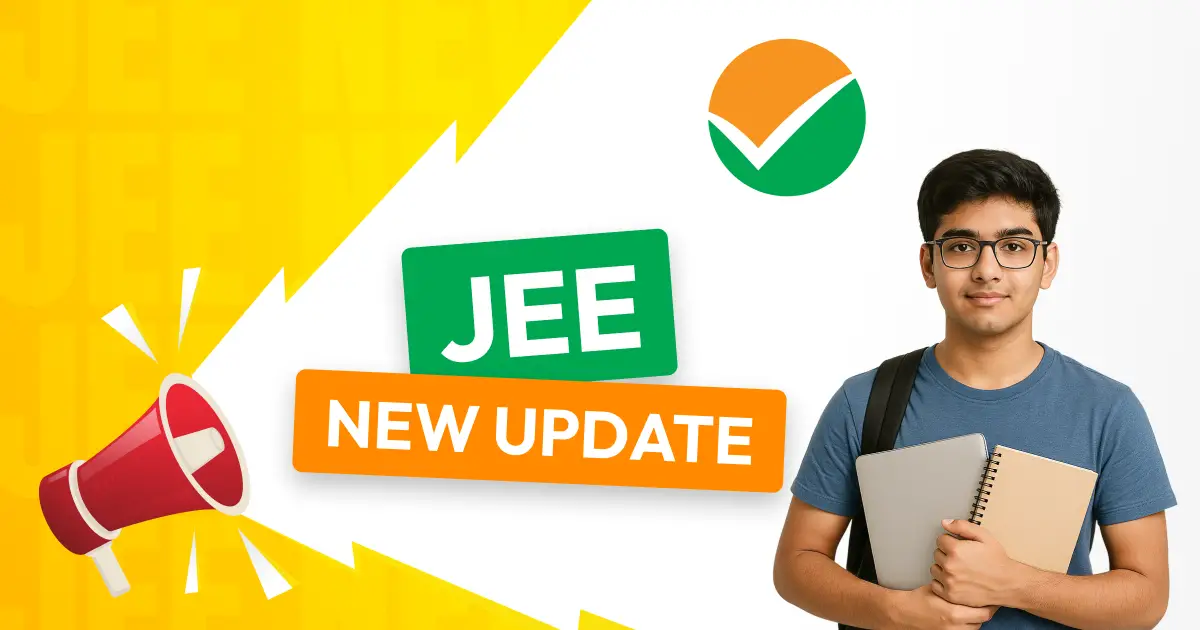
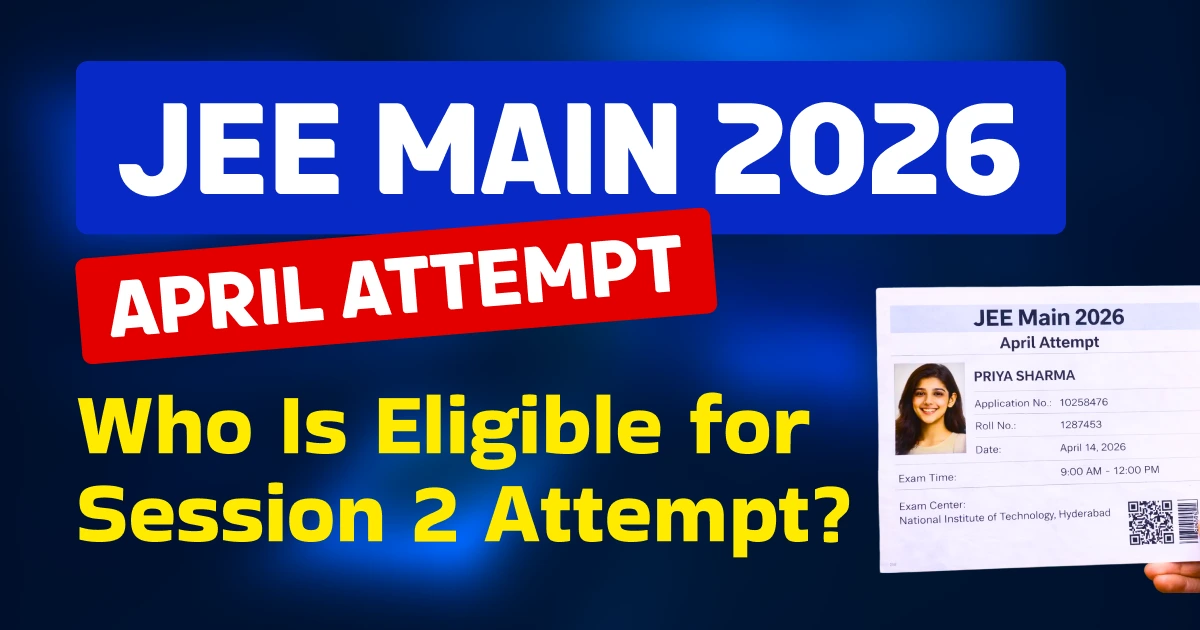
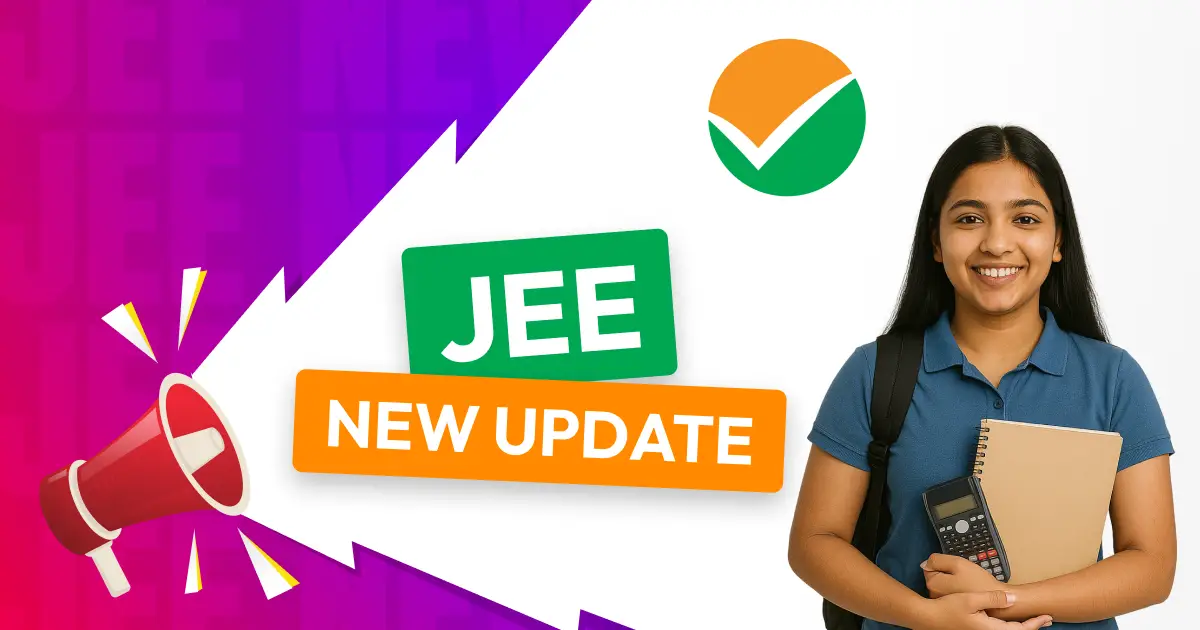

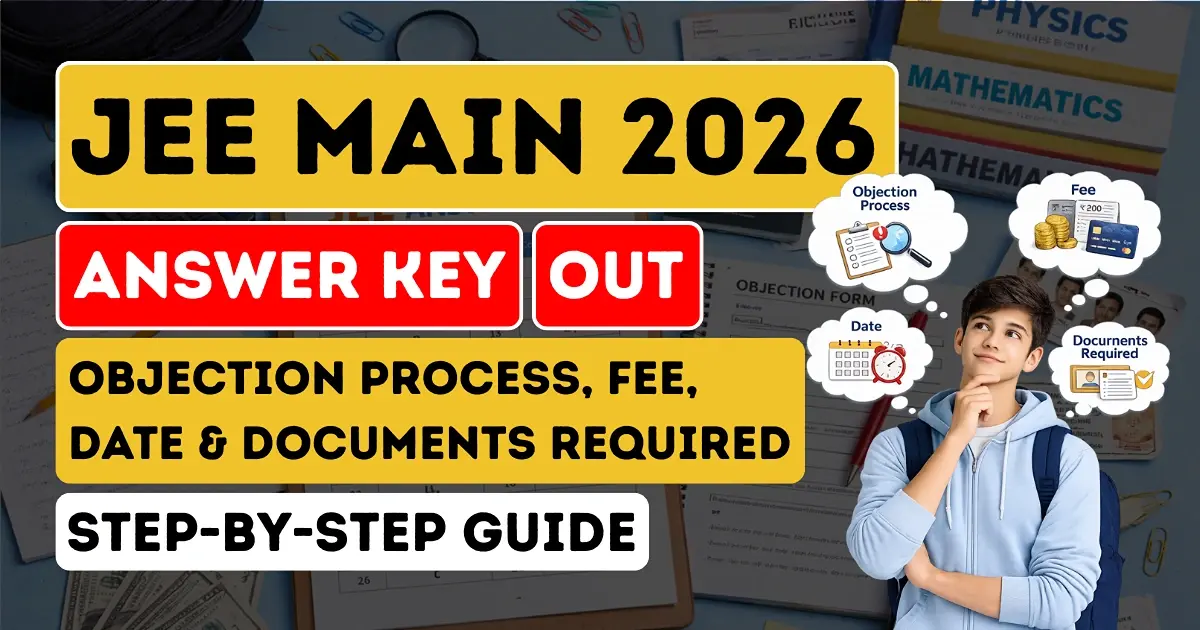









 Quiz
Quiz
 Get latest Exam Updates
Get latest Exam Updates 










